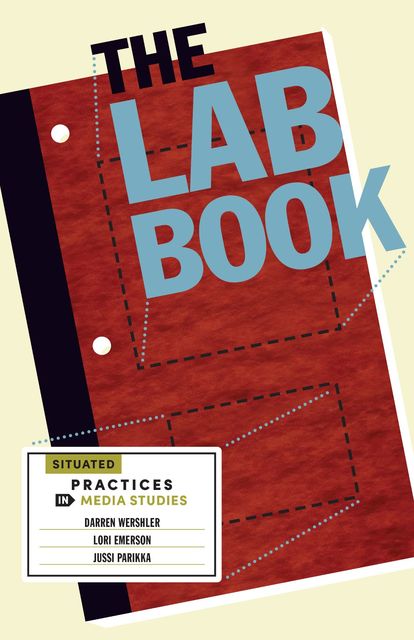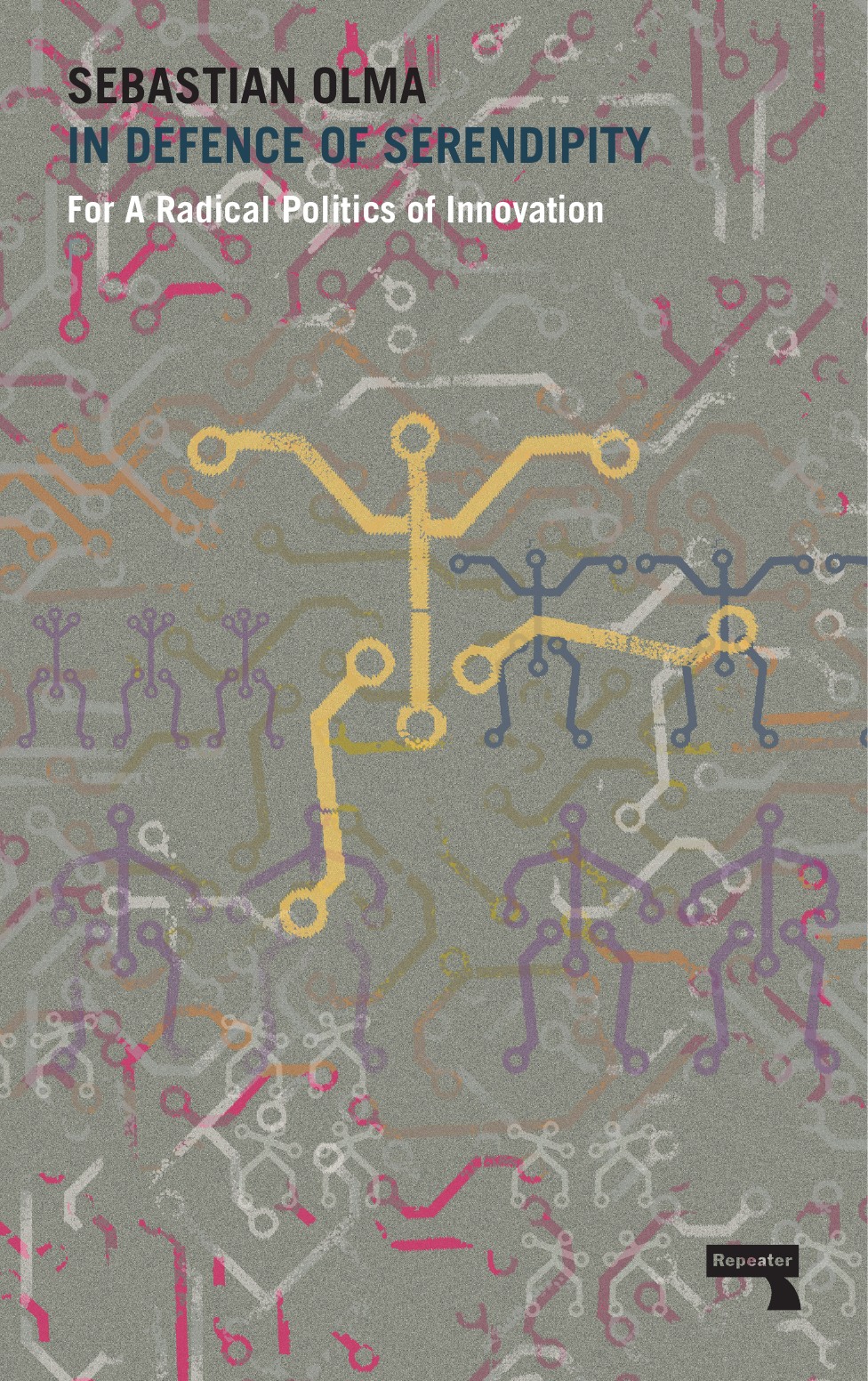Darren Wershler, Lori Emerson, Jussi Parikka: The Lab Book: Situated Practices in Media Studies (2022)
Filed under book | Tags: · apparatus, collaboration, computing, hackerspace, infrastructure, innovation, knowledge production, labour, management, media archeology, media labs, media studies, prototyping, race, research, space, technique, technology, university

“From the “Big Science” of Bell Laboratories to the esoteric world of séance chambers to university media labs to neighborhood makerspaces, places we call “labs” are everywhere—but how exactly do we account for the wide variety of ways that they produce knowledge? More than imitations of science and engineering labs, many contemporary labs are hybrid forms that require a new methodological and theoretical toolkit to describe. The Lab Book investigates these vital, creative spaces, presenting readers with the concept of the “hybrid lab” and offering an extended—and rare—critical investigation of how labs have proliferated throughout culture.
Organized by interpretive categories such as space, infrastructure, and imaginaries, The Lab Book uses both historical and contemporary examples to show how laboratories have become fundamentally connected to changes in the contemporary university. Its wide reach includes institutions like the MIT Media Lab, the Tuskegee Institute’s Jesup Wagon, ACTLab, and the Media Archaeological Fundus. The authors cover topics such as the evolution and delineation of lab-based communities, how labs’ tools and technologies contribute to defining their space, and a glossary of key hybrid lab techniques.”
Publisher University of Minnesota Press, March 2022
ISBN 9781517902179, 1517902177
x+333 pages
Project website
Publisher
WorldCat
HTML (Manifold)
Comment (0)Sebastian Olma: In Defence of Serendipity: For a Radical Politics of Innovation (2016)
Filed under book | Tags: · infrastructure, innovation, philosophy, platform, serendipity, technology

“In Defence of Serendipity is a lively and buccaneering work of investigative philosophy, treating the origins of “serendipity, accident and sagacity”, both as riddles and philosophical concepts that can be put to a future political use.
Taking in Aristotle, LSD, Tony Blair and techno-mysticism, Olma challenges the prevailing faith in the benevolence of digital technology and the illegitimate equation of innovation and entrepreneurship, arguing instead that we must take responsibility for the care of society’s digital infrastructure, and prevent its degeneration into an apparatus of marketing and finance. For although there is nothing wrong with marketing and finance per se, if they alone lead technological development, free of any discretionary political interference, the freedom to be exploited will be as much a part of the future as our ability to intervene freely in our lives, will be a thing of the past.”
Preface by Mark Fisher
Publisher Repeater Books, London, 2016
ISBN 1910924342, 9781910924341
237 pages
via WL
Reviews: Max Dovey (Imperica, 2017), Robert Hewison (Cultural Trends, 2016), Serendipitor (2016).
Comment (0)Virtueel Platform: Sectoranalyse E-cultuur (2011) [Dutch]
Filed under report | Tags: · copyright, creative industries, cultural politics, digital art, digital culture, innovation, intellectual property, knowledge economy, mobile technology, netherlands, new media art, web 2.0

Nieuwe kunstsector een feit: 400 miljoen euro jaaromzet voor Nederlandse digitale kunst en cultuur.
De Nederlandse digitale kunstsector heeft een jaaromzet van 400 miljoen euro en geeft werk aan ruim 10.000 mensen. Dit blijkt uit de ‘Sectoranalyse E-cultuur’ van Virtueel Platform die maandag 18 juli 2011 uitkomt. Het onderzoek werd uitgevoerd door bureau Veldkamp / TNS NIPO.
De sectoranalyse laat voor het eerst de omvang en karakteristieken zien van de relatief jonge maar snelgroeiende e-cultuursector. Een innovatieve sector die bestaat uit medialabs, kunstenaars, gamebedrijven, festivals, presentatieplekken en media- en kunstopleidingen.
In het rapport zijn vijftien Best Practice, goede voorbeelden van e-cultuur, te vinden.
Trends
Uit het onderzoek blijkt verder dat organisaties sociale media (74%) de meest belangrijke ontwikkeling van het moment vinden, op de tweede plaats komt mobiele technologie (47%). Een struikelblok blijkt onduidelijkheid over auteursrecht, waar 37% van de ondervraagden graag betere oplossingen voor ziet. Websites, interactieve installaties, mobiele media en apps en games met een educatieve of culturele toepassing zijn belangrijke producten.
Innovatieve sector
Directeur Floor van Spaendonck: “Het is nu een feit: het onderzoek bevestigt met cijfers dat e-cultuur een eigen sector is binnen de kunst, met opleidingen, producenten en afnemers. In deze sector vinden unieke experimenten met kunst en nieuwe media plaats. Daarom is het zaak dat de overheid met een stevig e-cultuurprogramma deze ontwikkeling en onderzoek blijft stimuleren. Het werk van medialabs als Mediamatic, Waag, V2_ en andere pioniers draagt wezenlijk bij aan inhoudelijke reflectie en verdieping van de kennismaatschappij”.
Publisher: Virtueel Platform, Amsterdam, July 2011
36 pages
Published under Creative Commons BY-NC
PDF (no OCR)
Comment (0)
